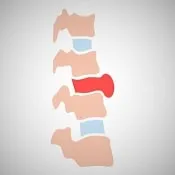

It is a sensitive procedure that directly operates hernia. It is also known as the protrusion of internal organs or surrounding walls. The surgeons find a hernia and make an incision near it, and it may work by pushing it back to the protruding place. After that, striches are done to weaker abdominal muscles.
It makes it easy for you to decide what would be a better option for you; we have listed a comparison for a better understanding:
A qualified general surgeon performs Hernia surgery. It may be associated with any branch of field related to the abdomen.
The main types of Hernia surgery are done. They are as follows:
Your surgeon will advise you on preparations according to your condition. Some of the common steps before a Hernia surgery is performed are:
Some of the benefits of Hernia surgeries include the following:
Hernia surgery typically takes 30-45 minutes.
Hernia surgery, like any operation, has some risks. It is a complicated procedure and, if not handled correctly, can cause issues that permanently impair internal organs. It is one reason you should go with a surgeon with a lot of experience with these procedures. The other risks include:
View Surgeries to book an online surgical procedure through Marham.pk or you can also call us at 042-32591427 or 0311-1222398 from 9 am - 11 pm to book an online lab test.
Cost varies depending on the type of surgery and locality.
Yes Hernia Surgery surgery available in Pakistan?
Our qualified team get back with authentic answers!